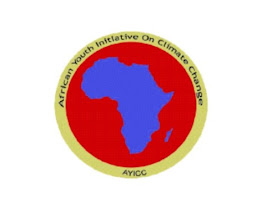Exploring the Green Economy and Youth Nexus
So, the last couple of years have seen issues of climate change and environmental degradation take centre stage in the global arena. More important, the role of human beings in creating and even aggravating these challenges is more prominent that ever. In 1987, there was a report from a commission called the Brundtland Commission which proposed the concept of Sustainable Development. In simple terms, sustainable development is development which uses resources in such a manner that they will still be available for use by future generations.
It is on this concept of sustainable development that the Green Economy model is hinged upon. Initiated by the United Nations Environment Programme, the definition of the Green Economy is one that results in improved human well-being and social equity, while significantly reducing environmental risks and ecological scarcities. In short, the Green Economy will make certain that profit is not the only driving factor of businesses. Other factors such as ecological impacts of businesses will also be included. For example, timber merchandises will have to make sure that they replant trees which they cut down, and that chemical companies do not pollute their ecological systems.
In order to fully comprehend the Green Economy model, it is imperative that you understand the concept of sustainable development. The latter is hinged on three pillars of sustainability, namely: environmental sustainability, social sustainability and economic sustainability. Environmental sustainability deals with the concept of using natural resources in such a manner as to ensure their availability to future generations. Social sustainability deals with issues that affect society such as health, gender equality and peace. On the other hand, economic sustainability deals with corruption, fair trade and fair pay and debt, among other issues. Thus, a Green Economy encompasses all these aspects in order to ensure that development is all encompassing.
Currently, almost half of the global human population is under 25 years of age, and this is the impetus young people have taken in order to address issues affecting them. Youth activism has been fortified by the current information revolution that is transforming how people are interacting. With the availability of troves of information and social networking tools, young people have come to the realization that they have to take leadership in addressing these gigantic human development challenges, as they are the most vulnerable demographic cohort. New activism models such as Clicktivism have also come into play. Such divisions as North – South superiority assumptions which have prevailed for decades, if not for centuries, are being blurred by the pace at which the world is globalizing. Now, more than ever, young people from all over the world are coming together to address these human challenges as they have realized that they share common but differentiated challenges. A candid example of this form of collaboration is the current global campaign by young people to have their views heard at the forthcoming epic Earth Summit in June in Rio de Janeiro, Brazil. Through the Major Group for Children and Youth (MGCY), one of the nine constituent groups of the UN Commission on Sustainable Development (UNCSD), young people have organized massive global mobilization and awareness campaigns towards the process; they have even provide policy input to the main summit. Such is the testament of how young people are addressing global challenges without having to blame or wait upon adults to do so.
However, it is important to note some distinctive facts, with special emphasis on the African continent. This is the continent with the biggest natural resource wealth, and about 70% of the population is under 30 years of age. But, there are many conflicts that dot the continent, and most of them are fuelled by the fight for natural resources such as minerals, oil and water; these wars are mainly fought by child soldiers. Also, climate change is ravaging the continent, as desertification is eating up arable land, water scarcity is on the rise; perpetual cycles of famine are now the norm, and there are never-ending conflicts such as the blood-diamond conflicts in West Africa and DR Congo.
This presents the ultimate opportunity for Africa to re-evaluate its development concepts and embrace the Green Economy in the appropriate context. It is important to note that the Green Economy is not cast in stone, contrary to what many critics usually point out. Rather, it is a template which each society can customize to meet their needs. Social sustainability will address the weak social systems that afflict African Societies; therefore, a social safety net will ensure that every member of a society enjoys the benefits of development. People will get access to health care; poverty will be reduced and even eradicated; peace will prevail as proper natural resource governance will be implemented; people will get equal opportunities irrespective of gender. Corruption will be effectively dealt with; crippling debts of poor countries will be written off and trade rules will be improved. Last but not least, people will benefit from the sustainable use of natural resources as everyone will have access to safe drinking water; sustainable agriculture will make sure that there is no more famine and future generations will be able to use natural resources in developing their societies.
The Green Economy model of sustainable development is already underway, thanks to the many business enterprises which are sustainable in nature. What is needed now is to mainstream this concept in order to improve our societies. The framework is there; the will and power of people and institutions need to be fortified, and we will have sustainable development, hence sustainable societies.

Comments
Post a Comment